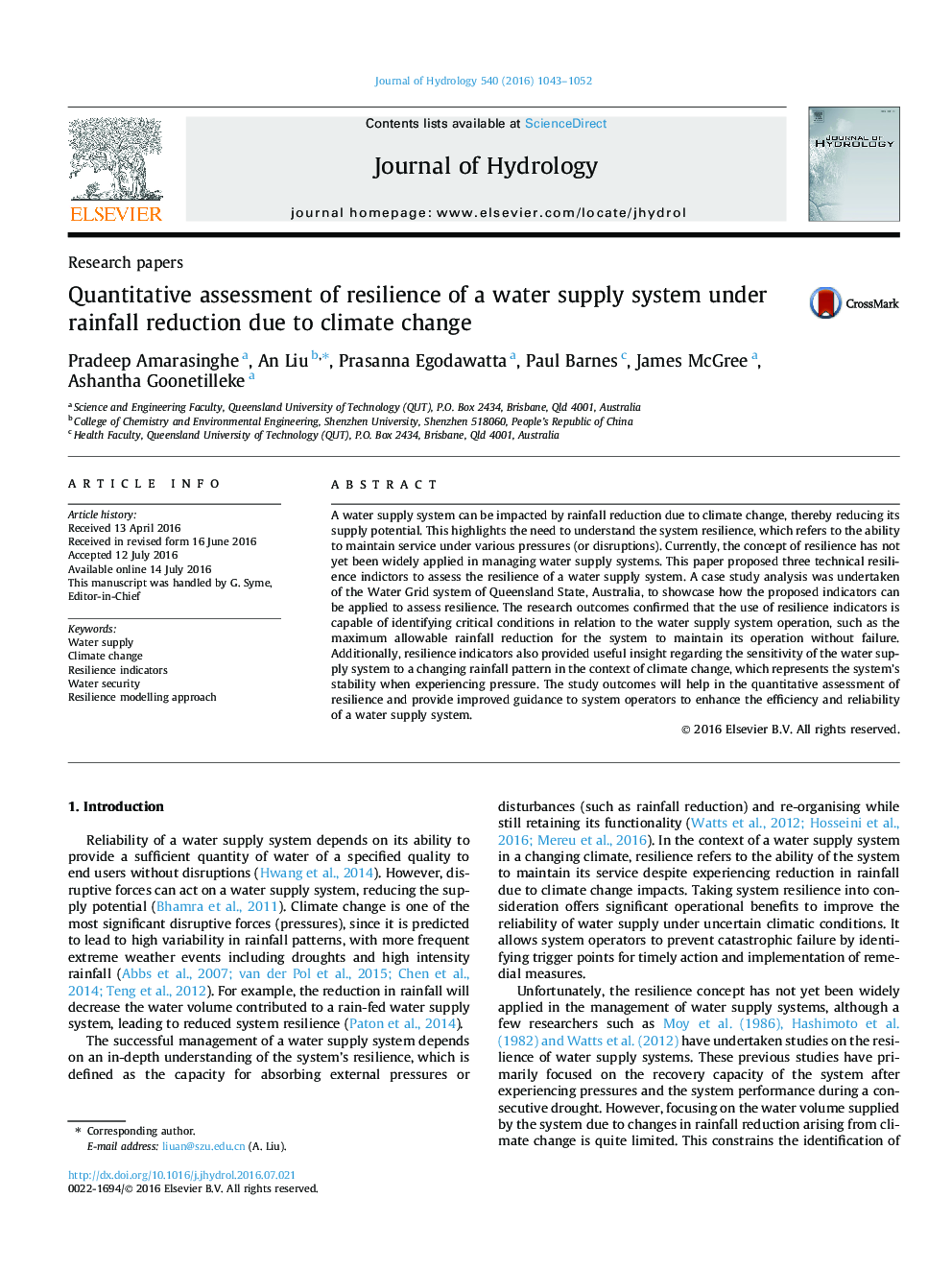| Article ID | Journal | Published Year | Pages | File Type |
|---|---|---|---|---|
| 6409684 | Journal of Hydrology | 2016 | 10 Pages |
â¢Technically robust indicators were developed for quantitative resilience assessment.â¢Indicators can identify critical conditions of water supply system operation.â¢Indicators can assess sensitivity of water supply system to changing rainfall pattern.
A water supply system can be impacted by rainfall reduction due to climate change, thereby reducing its supply potential. This highlights the need to understand the system resilience, which refers to the ability to maintain service under various pressures (or disruptions). Currently, the concept of resilience has not yet been widely applied in managing water supply systems. This paper proposed three technical resilience indictors to assess the resilience of a water supply system. A case study analysis was undertaken of the Water Grid system of Queensland State, Australia, to showcase how the proposed indicators can be applied to assess resilience. The research outcomes confirmed that the use of resilience indicators is capable of identifying critical conditions in relation to the water supply system operation, such as the maximum allowable rainfall reduction for the system to maintain its operation without failure. Additionally, resilience indicators also provided useful insight regarding the sensitivity of the water supply system to a changing rainfall pattern in the context of climate change, which represents the system's stability when experiencing pressure. The study outcomes will help in the quantitative assessment of resilience and provide improved guidance to system operators to enhance the efficiency and reliability of a water supply system.
